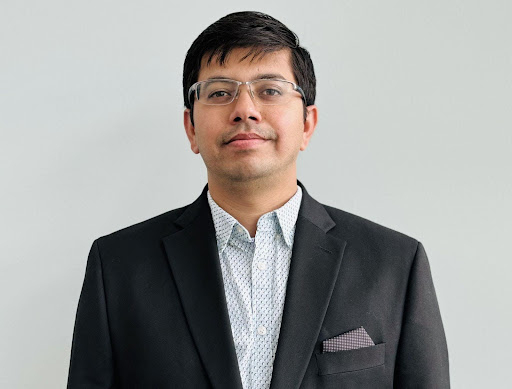
For many years now, medical professionals have battled cancer as a tough adversary. While the survival rate is at 68%, the mortality rate of 32% is still too high. In a race to bring the survival rate up to 100%, medical specialists work around the clock until they hit their next breakthrough.
Research scientists, in particular, are key figures in advancing the steps toward these breakthroughs. As one of the most renowned research scientists in his field, Rohan Kalyan Rej works in a constant state of trial, error, and triumph.
"We are on the brink of transforming cancer treatment standards," says Dr. Rej. As a leading research figure at the University of Michigan, Dr. Rej's forte has contributed to recent breakthroughs in small-molecule therapeutics. His work exemplifies how life-saving advancements strengthen oncology, with innovative strategies replacing traditional methodologies.
Older methods may have been the standard, but new medical discoveries undoubtedly open doors for more effective and personalized cancer care.
Cancer Statistics Today
According to the American Cancer Society, by 2024, the U.S. is projected to surpass 2 million new cancer cases for the first time, equating to nearly 5,500 new diagnoses daily.
While the overall cancer death rate has declined over the past 30 years saving approximately 4 million lives cancer incidence is increasing for six of the ten most common cancers: breast, prostate, endometrial, pancreatic, kidney, and melanoma. Unfortunately, the year is also expected to see over 611,000 cancer deaths. This averages over 1,600 daily, highlighting ongoing cancer prevention and treatment challenges.
The Art of Saving Lives: Breakthroughs in Small-Molecule Therapeutics
Researchers have held their ground on the frontlines of cancer research to revamp cancer treatment standards with brand-new therapeutic techniques. On this long and hopeful line, the high stakes offer life-saving rewards.
Dr. Rej leads this transformative wave with his extensive background in synthesizing bioactive natural products and a robust academic tenure. His initiatives focus on discovering and developing novel small-molecule therapeutics for treating human cancer and other severe diseases.
Dr. Rej's efforts and expertise in drug discovery led to the development of EEDi-5273, an EED (embryonic ectoderm development) inhibitor that has progressed into phase 1 clinical development. Researchers are testing it for safety and initial effectiveness in humans.
The experimental drug shows promise in treating advanced solid tumors, lymphomas, and sickle cell disease a genetic disorder that affects millions worldwide. Most of these symptoms and cancer types affect the lungs, breasts, prostate, and blood.
EEDi-5273, also known as APG-5918, blocks the EED protein, which is crucial for the growth of cancer cells and the symptoms of sickle cell disease. The drug interferes with regulating genes that promote tumor growth by targeting EED, potentially slowing down or halting cancer progression altogether. For sickle cell disease, in particular, it is engineered to improve red blood cell production.
"Our work with EED inhibitors has the potential to redefine how we tackle cancer treatment. We are actively thinking outside, above, and beyond the box to render a more reliable cure for cancer," Dr. Rej notes. This sentiment is echoed in the broader medical community, where there is growing excitement about the potential of epigenetic therapies.
Being a life-changing initiative, new avenues for cancer treatment arise that could complement or surpass existing practices.
"Teamwork is a focal point in our research initiatives," Dr. Rej shares. "We are working at a pace that could bring elevated cancer treatments to patients across the globe soon by joining forces with professionals from relevant industries."
The Impact of Collaborative Research
In Dr. Rej's words, these initiatives' success results from extensive collaboration between academic institutions and the pharmaceutical industry. The University of Michigan has been a hub for such collaborations, fostering an environment where revolutionary research can thrive. The university's commitment to drug discovery and state-of-the-art facilities have advanced Dr. Rej's work.
"In the medical field, we always aim to create collaborative environments. The most significant breakthroughs in history were made possible via the unified work of the most brilliant minds," says Dr. Rej. "My team and I are strongly focused on making terminal cancer a thing of the past."
Fighting for a Cancer-free Future
As tomorrow dawns, the role of innovative research in cancer treatment cannot be overstated. Dr. Rej remains optimistic about the future, stating, "The next decade will likely see a paradigm shift in how we treat cancer. We are driven by our increasing ability to understand and manipulate the molecular underpinnings of the disease."
"From where I see it, the road to a cancer-free future may not be too winding anymore," he adds. This progressive view is supported by industry forecasts, which predict continued growth and innovation in oncology. These new methods offer sparks of hope to millions of patients all over the world.
Reflecting on the broader impact of his work, Dr. Rej offers a poignant observation: "Our ultimate goal is to turn the tide against cancer, not just through incremental improvements but by fundamentally changing how we prevent and cure it."
Never fazed by the intricacies of drug development, clinical researchers continue to unravel new possibilities. With this in mind, the contributions of dedicated scientists like Rohan Kalyan Rej will certainly play a vital role in building a future where cancer is no longer a formidable adversary but a manageable condition.









